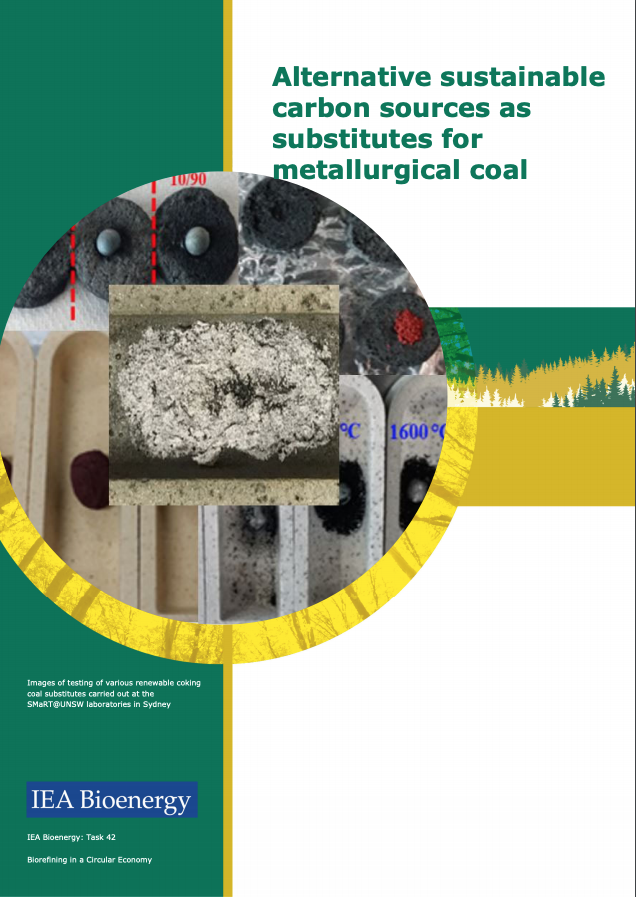New Publication – Alternative sustainable carbon sources as substitutes for metallurgical coal
Each year over 1 billion tonnes of metallurgical coal (coking coal) is utilised to produce most of the 1.7 billion tonnes of steel produced worldwide. Renewable alternatives need to be developed so that current fossil derived coking coal can be substituted by renewables at reasonable cost. This would be a significant step forward in addressing the underlying cause of climate change.
A series of experiments were carried out to test the potential of utilising waste compact disks, macadamia nut husks and lignin derived from a lignocellulosic bioethanol process. The results from tests of the lignin showed that the impurities contained can be advantageous or at least tolerated by steel manufacturers. It was found that the lignin was also a suitable substitute at a range of temperatures with typical sponge iron product being produced.
Of the three products trialled in the program, lignin has the greatest potential to reduce non-renewable coke consumption. Calculations suggest that if 10% of the world’s gasoline demand were replaced with ethanol produced from lignocellulosic sources approximately 20% of fossil coke consumption could be replaced by renewable lignin.
Not only would the use of lignin derived from lignocellulosic sources reduce the need for fossil coke, it could significantly enhance the economics of lignocellulosic bioethanol production. Metallurgical coal typically trades at a premium to that of thermal coal. In replacing the relatively low value option of burning lignin in the lignocellulosic bioethanol refinery, the effective value of the lignin could be doubled if sold as a metallurgical coal replacement (ignoring any potential carbon credits). In total, lignocellulosic biorefinery revenues could be lifted by between 5.8% and 11.2% depending upon whether higher or lower met coal price assumptions are utilised.



